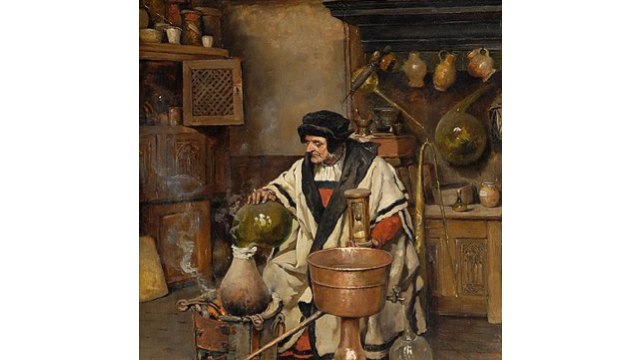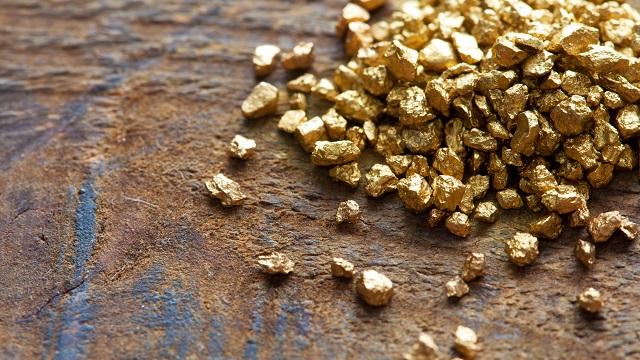How the death of alchemy gave birth to modern science
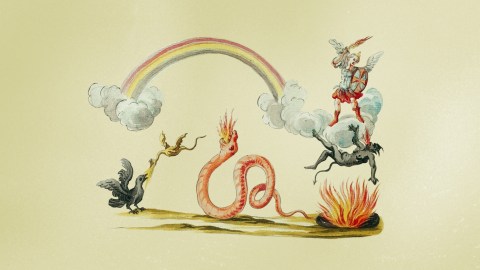
- Alchemists tried to artificially create things that grow organically in nature.
- Many alchemical processes might not have been scientifically accurate, but they helped lay the foundation for modern science.
- Among other things, metallurgy and cosmetics owe their existence to alchemists.
Thanks to stories new and old, from the legend of Johann Faust to the Harry Potter books, we remember the medieval discipline of alchemy not as a science but a form of witchcraft, practiced behind closed doors on stormy nights by bearded men bent over stuffy tomes and smoking beakers.
This perception was shared not only in popular culture but also in academic circles. Up until recently, the dominant belief among medieval scholars was that alchemy ought to be counted among the many superstitious beliefs that kept the Dark Ages dark until the Scientific Revolution came along.
However, recent scholarship has revealed that alchemy was a much more rational and methodical process than we previously thought. Far from prolonging the Dark Ages, alchemy hastened the development of scientific thought, empirical study, and the Scientific Revolution as a whole.
In particular, alchemy’s obsession with “transmutation” — the breaking down of matter to create entirely new materials — represents man’s earliest attempt to grasp the logic behind chemical reactions. In other words, without alchemy, chemistry might not be where it is today.
The history of alchemy
Although closely associated with medieval Europe, the origins of alchemy are neither medieval nor European. Alchemy started in Alexandria, an ancient metropolis located in modern-day Egypt, and it combined Aristotelian philosophy with Eastern thought, religion and astronomy.
While its character and objectives shifted over time, alchemy can be loosely defined as the attempt to artificially create things that develop organically in nature, including precious metals, such as silver and gold, as well as life — human life, to be precise.
Informed by Greek notions that materials were made up of opposing elements and that those elements could be organized in a hierarchy from base to pure, alchemists from Egypt and Persia tried to make gold by dissolving other metals into their chemical components. Instead of gold, though, they ended up with alcohol and acid.
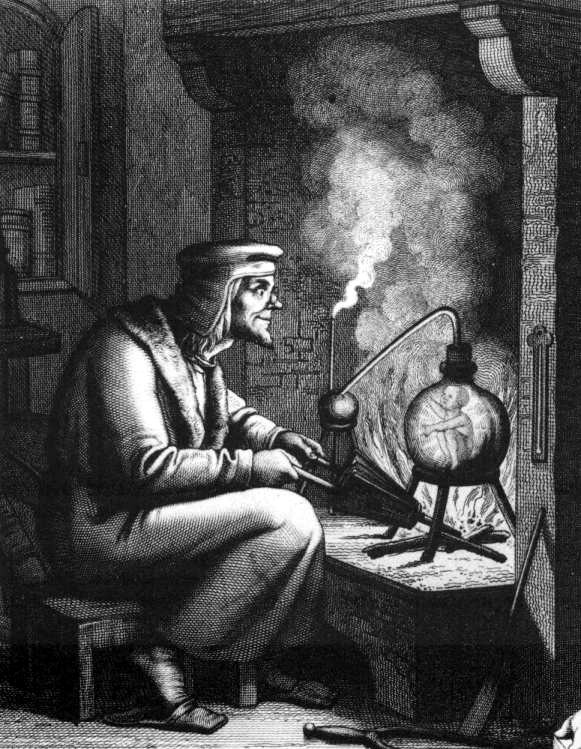
When alchemists were not trying to produce gold, they were trying to create homunculi: tiny, fully formed, and functioning humans. A text called Book of the Cow, which some think was written by Plato, calls for an ewe to be injected with human sperm — a twisted antecedent to artificial insemination.
According to the book, the impregnated animal wouldn’t give birth to a person, but a shapeless mass. Contact with sulphate, magnet, iron, and the sap of a white willow would allow the mass to start growing skin, after which it should be placed inside a glass container, where it would develop into a human.
Finding science in sorcery
The vast majority of alchemical processes were based on outdated and unscientific ideas. Transmutation, as mentioned, was rooted in the belief that nature strives for perfection and that you could turn base metals into gold by distilling and purifying them.
Toward the end of the Middle Ages, however, alchemical experimentation helped give way to sounder scientific theories. As the historian Bruce T. Moran points out in his book Distilling Knowledge, for example, alchemy inspired the formulation of Isaac Newton’s law of universal gravitation.
Newton, writes Moran, “adopted the alchemical notion of active principles that accounted for the attractions of affinities between bodies.” A deeply religious person, Newton equated alchemy with divine knowledge — knowledge that, he thought, had been passed down from God to humanity through alchemists.
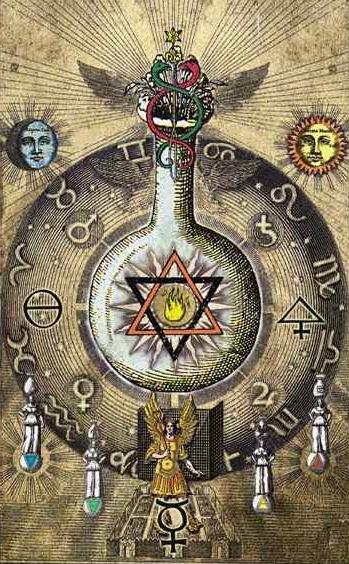
One of Newton’s contemporaries, Robert Boyle, the grandfather of chemistry, was similarly indebted to the early medieval alchemists who preceded him. Boyle’s “corpuscularian” theory, which holds that matter consists of particles, can be traced back to one of the earliest alchemists, Jabir Ibn Hayyan, also known as Geber.
Taking things a step further, Boyle argued that matter could be transmutated if we found a way to rearrange its particles. His argument was put to the test in 1919 by Ernest Rutherford, who became the first to perform a nuclear reaction by separating nitrogen into hydrogen and oxygen atoms.
In his 1990 book Alchemy, A.J. Holmyard, a scholar who rejected alchemy’s evolutionary link to science, suggested that Boyle’s work was intended as a rejection of alchemy in the face of a newer, better discipline. (More recent research generally agrees that Boyle was considered a part of the alchemical tradition.)
From transmutation to metallurgy
Some alchemical objectives — like turning metal into gold or growing a tiny human inside a glass — were fantastical pursuits that not even modern science can accomplish. Others were more realistic and practical, leading to the development of dyes, cosmetics, and metallurgy.
However, the most important legacy of medieval alchemy may not be found in everyday products like paints or dyes, but in the way we think. During the Middle Ages, Glynis Coyne explains in an article, European universities were largely devoted to studying old information rather than looking for new truths.
“While alchemy was indeed a part of that scholastic mainstream,” the article adds, “it always had much more of an active, indeed experimental, aspect. Alchemists did not just discuss ideas; they performed their procedures with a clear goal in mind.”
Similar to present-day scientists — or students taking biology or chemistry classes — medieval alchemists formed hypotheses and then conducted experiments to check whether those hypotheses held up. Their processes may not have been as refined or consistent as ours, but the underlying approach is similar.
Ultimately, the alchemists did not suddenly step aside to make room for scientists, but merely “refined” their discipline by removing its ancient, occult, and superstitious influences. Instead of delaying the advent of science, alchemy should be seen as the historical predecessor of biology, chemistry, and even physics.
